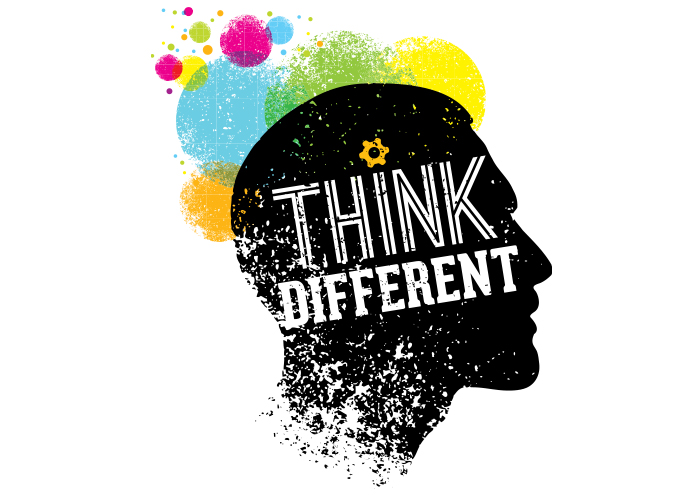
“Mindfulness means paying attention in a particular way, on purpose and non-judgementally” Jon Kabat-Zin
Mindful eating is gaining a huge following at the moment but is there any evidence that it really helps? I take a look at how you can become more self-aware and develop a healthy eating mindset.
Mindfulness claims to give us a better awareness of ourselves and our relationship with the world and others around us moment by moment. This is facilitated by Mindfulness “practices”, which are rooted in a type of meditation which is done in an entirely secular way. If nothing else people report that it is a pleasant experience and if something pleasant can help us achieve a healthier diet then it would get a big thumbs up from me.

Understanding why we eat is key in helping us adopt a healthier diet
There is good scientific evidence for the benefits of mindfulness as a preventative strategy for people with recurrent episodes of depression and a few scientific studies have been carried out to look at the benefits of mindful eating specifically. However at this moment in time the findings in relation to eating do not offer conclusive proof that it helps. Whilst we don’t have evidence to show whether mindfulness can significantly improve our eating behaviour it is also true that there is no evidence that the approach is harmful. I practise Mindfulness myself and I find that it helps me come out of auto-pilot, which gives me the opportunity to become more aware of the different possibilities that are open to me in relation to how I might choose to respond to the things that happen. I have used the practice to help me respond more positively to the demands of parenting children with significant additional needs but I can see that the approach certainly has relevance to making positive choices about what we eat and drink and I look forward to seeing more research in the field.
So if you have time to commit to the practice it is certainly worth a try. You can learn mindfulness using Apps such as Headspace and the Mindfulness App and from online courses. For example Wellmind Media in partnership with the Mental Health Foundation has developed an online 4 week course. The course was evaluated by Oxford University. You can find out more here.
“The first thing I try to help people with is recognising and understanding what triggers their eating”
Where we do have stronger evidence of benefit, specifically related to eating, is in the field of Cognitive Behavioural Therapy (CBT.) CBT is a type of psychotherapy in which negative patterns of thought about the self and the world are challenged in order to alter unwanted behaviour patterns. Two large and well-designed experimental studies called Randomised Controlled Trials (see my post “Find out the truth about what to eat once and for all” for an explanation of this type of scientific study) showed that CBT produced significantly better reduction in energy intake and weight when compared with standard dietary education. One of the strategies used in these studies was to help people identify and then change situations, times, people and emotions that triggered eating. Fans of mindfulness would say that the practice of mindfulness would help people identify eating triggers as it promotes awareness “in the moment.” In addition there are many other tools we can use to promote awareness around hunger and why we eat and I like to have a full box of tools to dip into as different people benefit from different things.
I am interested in how our ideas and attitudes around food impact our eating and drinking behaviours in other words our “Eating Mindset.” Based on my 20 plus years of experience I describe Eating Mindsets as either, defensive (constantly retreating into a fortress where you are protected from temptation), defeated (feeling like it’s impossible to eat healthily because of the circumstances of your life), emotional (eating and/or drinking to manage your emotions), boom and bust (periods of defensiveness followed by periods of emotional and/or defeated behaviours in a constant cycle) or well nourished (free to enjoy food and make healthy choices socially and when eating alone.) I find that most people have attitudes that fit with a couple of the mindsets and knowing where people sit helps me to work with them to develop strategies to get them to a place where their mindset has shifted and become more “well-nourished.” Once you understand your Eating Mindset better you can start to develop a personal plan with strategies that will help you be fore-warned and fore-armed to tackle the things that might de-rail you.
“Sometimes we are hungry but it’s an overwhelming emotional hunger”
As well as looking at mindsets I also like to look at hunger. One of the things I ask my clients to do before I see them is to keep a record of their food and drink intake AND how they were feeling at the time. It’s interesting that people rarely note whether they were actually hungry! Understanding hunger is crucial for success.
Sometimes people experience “mouth hunger.” This often happens when our senses come into contact with food that we know we enjoy. An advert might come on the TV or we might literally drool if we see a delicious looking cake in a cafe or worse still on someone else’s plate!! If we are not actually physically hungry, mouth hunger can often be satisfied with a “tiny taste” of something we like. However if there is more to it than just the memory of a pleasant taste stimulating our gastric juices then it’s trickier.
Sometimes we are hungry but it’s an overwhelming emotional hunger. This type of hunger can be triggered by all sorts of emotions eg anger, sadness, loneliness, boredom or anxiety. Emotional hunger is often only satisfied by particular foods that we crave when we are feeling a certain way. Some people say that only say cake or pizza will take the hunger away, a well-balanced meal simply wouldn’t cut it.
Everyone is different so I can’t just provide a neat list of strategies for managing emotional hunger but the key thing is to find something that is practical and enjoyable so that you can manage your emotions without the need for food.
Sometimes we can become physically and/or emotionally overwhelmed by the pressures that life brings and then we simply feel exhausted. This can lead to us making very poor choices about what we eat and drink and we can get into a vicious cycle. If you are not sleeping well this can reduce levels of the hormone leptin, which normally helps us feel full and increase levels of the hormone ghrelin which makes us feel hungry. To get back on track find ways to improve your sleep. Cutting down on caffeine containing drinks may help especially if you normally have them in the afternoon and evening. Limiting alcohol and heavy meals in the evening can also help, more on the importance of eating patterns later. More generally having a good routine, limiting screen time for a couple of hours before bed and having strategies for managing your worries so you don’t start to ruminate on them as soon as you get into bed are also important.
Habit eating is another area that can be a big issue. So many of us fall into habits of eating when we are doing something else. We might nibble chocolate or drink wine whilst we are watching TV or reading a book or maybe you can’t imagine your morning commute without a latte and a muffin. Once these habits are set you will find yourself eating even though you are not hungry. Try to break the habit by occupying your hands with something else. You might want to knit or sew or fiddle with a tactile toy. Some people even like to use hand weights to build muscle strength or do other exercises whilst watching TV.
“I like to work with my clients to help them discover an eating pattern that works best for them.”
I’m a big fan of encouraging regular meals because if you just skip meals you reach the point of extreme hunger and then tend to over-eat. However I like to work with my clients to help them discover an eating pattern that works best for them.
I know there is emerging research to suggest that we should eat more earlier in the day and less in the evening; remember the old saying “breakfast like a king, lunch like a prince and dine like a pauper.” However much more research is needed to give us conclusive proof. In reality people don’t just eat to satisfy their physical needs. Food is important socially and culturally and absolutely key for strong family relationships. Whatever the research eventually shows people will still eat socially and with their family in the evening and this is a very positive thing. However this does not mean you have to eat a huge meal if you have already had enough earlier in the day. Recognising your hunger and your hunger patterns can help you plan ahead. For example you might note that you never eat lunch because you are always busy at that time of day, you then eat a huge evening meal because you are totally ravenous. Planning ahead and having something healthy as soon as you start to feel genuine physical hunger towards the middle of the day, will help you avoid over-eating in the evening.
And that leads me onto getting organised, which will be the next topic in this “get real” series. Eating more healthily is a very individual thing and whilst diets and meal plans and recipes are useful structures on which to hang our efforts, longterm change requires that we think about all four aspects of “getting real.”
- Get well-informed. (See “The Hottest Celebrity Diets.”)
- Get more self-aware
- Get organised
- Get supported

